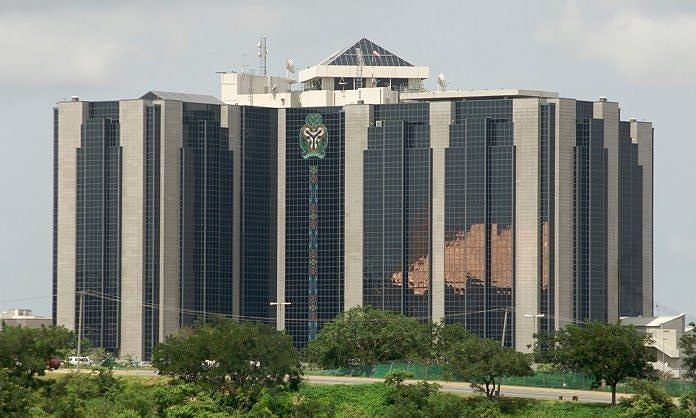By Oke Epia
| E-mail: sostainability01@gmail.com | WhatsApp: +234 8034000706
Trends & Threads
CSRD: What the European regulation means for multinationals in Nigeria
The Corporate Sustainability Reporting Directive (CSRD) has become a pivotal framework in the European Union’s (EU) efforts to promote sustainable business practices. Enacted on January 5, 2023, the CSRD is a legislative framework that requires EU businesses, including qualifying EU subsidiaries of non-EU companies and EU multinationals operating abroad, to provide comprehensive reports on their environmental, social, and governance (ESG) impacts. Consequently, companies headquartered in Europe and operating in Nigeria are required to report audit-verified data covering their Nigerian operations. By implication, there is an obligation on local partners and suppliers aligned with these companies. This provides a legal basis to demand accountability from multinationals in sectors such as oil and gas, energy, transportation, logistics, and power, regarding their Environmental, Social, and Governance (ESG) practices for the benefit of stakeholders. By implication, oil multinationals operating in Nigeria are accountable to the highest standards of carbon emissions reporting, social responsibility and sound governance ethics. This also means that Nigerian service companies will start receiving CSRD-driven questionnaires and contract clauses across the ESG domains, including emissions reductions, labour relations, anti-bribery and anti-corruption.
The CSRD extends its scope beyond financial reporting by emphasising three additional areas: the impact of activities on the climate, climate risks affecting the company, and how organisations manage these issues. The directive aims to align with the ambitions of the European Green Deal, targeting carbon neutrality by 2050. As of 1 January 2025, the framework has come into effect, with a phased implementation to accommodate businesses of various sizes and scopes. The CSRD significantly influences sustainability requirements, compliance, and reporting. It introduces the concept of double materiality, requiring companies to assess both their effects on people and the environment. It mandates the disclosure of comprehensive information, including both forward-looking and retrospective data, and extends reporting across the entire value chain, both domestically and internationally. The framework includes 12 standards detailing disclosures and metrics related to sustainability issues, including mandatory reporting on climate change, pollution, water and marine resources, biodiversity, ecosystems, resource use, and circular economy practices; social reporting involving the organisation’s workforce within the value chain, affected communities, consumers, and end-users; and the maintenance of high governance standards, including anti-corruption measures.
The CSRD mandates a phased third-party auditing process to verify the accuracy and authenticity of information and data in reports. To enforce compliance, the framework requires EU member states to establish investigative and enforcement bodies capable of imposing “effective, proportionate, and dissuasive” penalties. Essentially, non-compliance with the CSRD can lead to sanctions, including fines that are proportional to the profits gained from the infringement and the financial capacity of the company.
The CSRD creates many opportunities for stakeholders, including civil society and the media, to engage with multinationals in Nigeria. It offers potential solutions to challenges posed by legislation, regulation, and litigation in Nigeria. It also encourages collaboration to improve sustainability. For example, regulations enacted by the Nigerian Upstream Petroleum Regulatory Commission (NUPRC), such as the Gas Flaring, Venting and Methane Emissions Regulations (2023), which require daily logs and MRV for produced, consumed, flared, vented gas, and fugitive emissions, serve as valuable primary data sources for reporting in Europe.
Washing and Hushing
ESG Reporting: Navigating the Borderlines of Greenwashing and Social Washing
As Corporate Sustainability and ESG reporting gain increasing prominence, businesses are tempted to cross the fine line between transparency and inaccurate disclosure, often resulting in greenwashing or social washing, or both. For shy or extremely cautious companies, the fear of committing these corporate offences may lead them to hide their true credentials and stewardship. Both extremes present concerning challenges in the rapidly evolving field of sustainability. In today’s business ethics landscape, the concepts of Environmental, Social, and Governance (ESG) and Corporate Sustainability Reporting (CSR) have gained significant attention. These two are interconnected and vital for understanding how companies contribute to sustainable practices and societal welfare. These dual frameworks are frequently used to assess and promote sustainability within organisations.
ESG involves assessing a company’s sustainability through metrics related to its environmental impact, social responsibility, and governance practices. This assessment aims to determine the company’s sustainability and resilience, thereby holding it accountable for its commitments, practices, and claims. It significantly influences the decisions made by financiers regarding capital allocation and shapes the perspectives of investors and stakeholders on financial health. Businesses that genuinely focus on ESG can access new markets, reduce costs, enhance employee efficiency and retention, and optimise asset distribution.
While complying with ESG requirements, companies have a responsibility to their shareholders to make a profit while also contributing to the economic development of the community and country. In simple terms, it is a company’s dual commitment to financial prosperity and community development. Beyond generating profits, companies play a vital role in economic growth by creating jobs, investing in local businesses, and contributing to the economic ecosystem. By adhering to fair labour practices, providing competitive wages, and fostering innovation, companies enhance their contribution to the broader economy while ensuring the well-being of their employees and the communities they serve. This is a delicate balance to be navigated with tact, sincerity, and professionalism.
Due to ESG obligations, some companies tend to make false or exaggerated claims about their environmental stewardship, social responsibility, and governance practices. These claims often overstate their actual impacts in these areas, making them guilty of greenwashing and/or social washing, as appropriate. This page is dedicated to scrutinising the sustainability reports of companies in order to identify these unethical practices and promote accountability.
It will also keep tabs on how relevant agencies, like the Financial Reporting Council (FRC), the Federal Competition and Consumer Protection Commission (FCCPC), and the Advertising Practioners Council of Nigeria (APCON), etc, are delivering on their mandates
Spotlight
Easy on the CNG Hype, Please
Experts and advocates have argued that the transition from fossil fuels to clean energy should be phased to prevent sudden disruptions to the economy and society. In this regard, Nigeria has adopted Compressed Natural Gas (CNG) as an alternative to premium motor spirit (PMS). This is one of several policy responses following the Bola Tinubu administration’s abrupt removal of fuel subsidy in 2023. Understandably, the scheme has been met with significant hurdles, including structural gaps like insufficient refuelling stations (the few CNG stations exist in Lagos, Abuja, and a handful of pilot projects); vehicle conversion cost (which is unaffordable for many vehicle owners without government subsidies); pipeline and storage infrastructure; and, of course, health and safety concerns. Stakeholders have also identified challenges related to policy and regulatory uncertainty, which is exemplified by weak enforcement of gas utilisation policies, the absence of clear incentives, overlapping regulators, market and economic barriers, and supply reliability issues. Despite these formidable challenges, some government functionaries have recently been on overdrive, trumpeting scant gains of CNG to apparently justify humongous sums of money spent so far. There is nothing wrong with acknowledging progress, but it is wrong to elevate it to propaganda levels. Doing so only obscures the real issues, discourages innovation, disincentivises collaborations, and politicises an otherwise worthy initiative. Already, the National Assembly has instituted a probe into the implementation of the scheme. This page will keep an eye on that exercise and the CNG initiative generally.
The post SOStainabilityWeekly appeared first on THISDAYLIVE.



